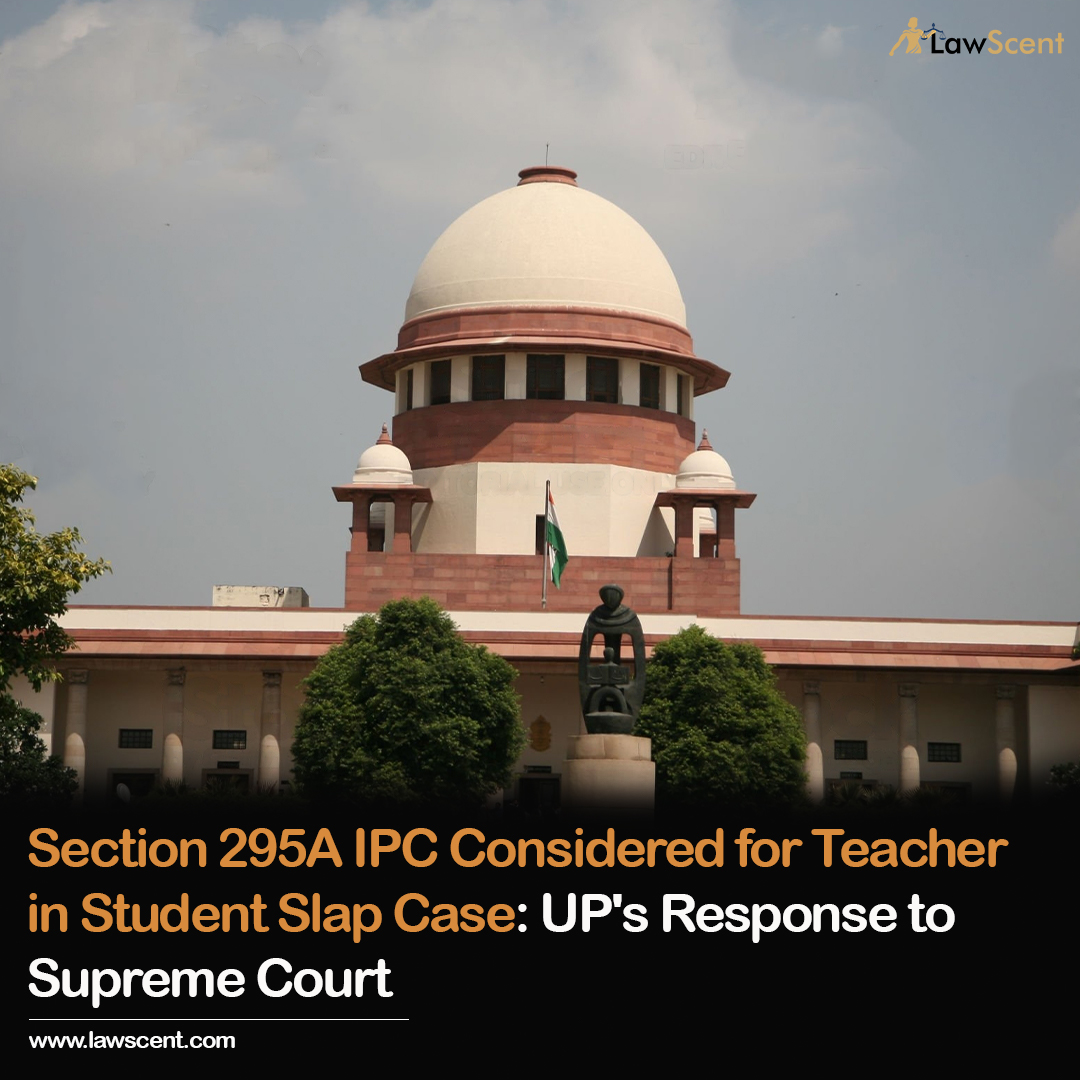
The Supreme Court has issued a judgment on the matter of a school teacher in Uttar Pradesh who was accused of inciting students to slap a Muslim classmate. The State government informed the Supreme Court that the teacher may face charges under Section 295A of the Indian Penal Code (IPC), which deals with deliberate and malicious acts intended to outrage religious feelings.
The case centers on a school teacher, Tripta Tyagi, who allegedly made derogatory comments about a Muslim student’s religion and asked his classmates to physically harm him. A video of this incident went viral on social media, leading to the sealing of the private school in Khubbapur village. The teacher, in response to the public outcry, released a video statement acknowledging her mistake but denying any communal angle to the incident.
Tushar Gandhi, the great-grandson of Mahatma Gandhi, filed a plea with the Supreme Court, seeking a time-bound and independent investigation into the incident. He also sought remedial actions to address violence against school children, especially those from religious minority groups. The Court expressed its concern about how the Uttar Pradesh Police and government were handling the case during earlier hearings.
The Court took issue with the contents of the first information report (FIR), which omitted critical allegations. As a result, the Court directed that the investigation be led by a senior Indian Police Services (IPS) officer nominated by the State government. The appointed officer was tasked with examining whether the offense of hate speech under Section 153A of the IPC applied to the case.
The Court also emphasized the importance of proper counseling for the victim-child and his classmates. It recommended that professional counseling services be provided to address the emotional and psychological impact of the incident.
During a recent hearing, the Additional Solicitor General, KM Nataraj, representing the Uttar Pradesh Police and the State’s Home Department, informed the Court of their decision to invoke Section 295A of the IPC instead of Section 153A, which pertains to promoting enmity between different groups. However, they were awaiting formal sanction from the State government to proceed under Section 295A.
In response, the bench of Justices Abhay S Oka and Pankaj Mithal directed the State government to promptly make a decision regarding the grant of sanction. The Court also discussed the possibility of involving professional agencies, such as the Tata Institute of Social Sciences (TISS) or the National Institute of Mental Health and Neuro-Sciences (NIMHANS), to provide counseling to the victim student and his classmates.
The Supreme Court’s decision underscores the significance of addressing incidents that have the potential to outrage religious feelings and incite violence in schools. By invoking Section 295A of the IPC, the Court sends a message that such actions will not be tolerated and will be met with legal consequences. It also highlights the importance of providing psychological support and counseling to the victims and witnesses in such cases to help them cope with the trauma and emotional distress caused by such incidents.
This case has garnered significant attention and serves as a reminder that promoting religious tolerance and respecting the rights of individuals from all communities is essential in a diverse and pluralistic society. The legal process is ongoing, and further actions will be taken to ensure that justice is served and the rights of the victim are protected.

 Cart is empty
Cart is empty